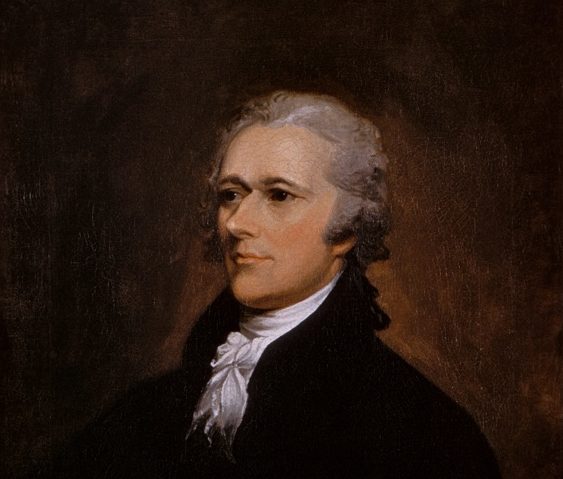“…the borrower is servant to him that lendeth” (Proverbs 22:7)
“There is an elegant memorial in Washington to Jefferson, but none to Hamilton. However, if you seek Hamilton’s monument, look around. You are living in it. We honor Jefferson, but live in Hamilton’s country . . .” (George Will, Restoration: Congress, Term Limits and the Recovery of Deliberative Democracy, 1992)
I do concede the point to Mr. Will. The American balance sheet demonstrates beyond the shadow of a doubt that we no longer live in Mr. Jefferson’s America, and that America, circa 2014, is indeed Mr. Hamilton’s memorial. Some recent dismal statistics drive home the point. In a country of 315 million or so souls, only 2.2 million live on farms, and less than this actually live and work on a farm. Only 9 million folks are self-employed in non-farm occupations. The current average credit card debt is around $15, 162.00; the average home-owner’s mortgage balance weighs in at $147,967.00, and the average student loan debt per household is $33,445.00. Meanwhile, the median net wealth of American households has declined from $73,000.00 (1983) to $57,000 (2010). The portrait, from a Jeffersonian perspective is dark: high indebtedness, low ownership of productive property, and declining net wealth.
Now the partisans of Mr. Hamilton may protest that these numbers do not portray, shall we call it, Hamiltonian optimality. They may go further in their protest and assert that Mr. Hamilton was most supportive of a society wherein there existed many small privately owned farmsteads and small manufacturing establishments. But Mr.Will, and other Hamilton supporters, do insist that contemporary America is the land of Hamilton. Moreover, Mr. Hamilton was keen on wedding large capital to large government, and thus uniting their interests. Therein lay the rub. In Mr. Hamilton’s world, at least according to Professor Domhoff, the top 1% own 35% of all the wealth of America. If we wish to give Mr. Hamilton the credit for the prosperity of the 1990s, it seems only just to lay the darkness of the Great Recession at his table as well. Indeed, I remember well the days when the Republican Party ridiculed Michael Dukakis, and rightly I might add, for his insipid campaign slogan, “Good Jobs at Good Wages.” Yet as we Americans continue to witness the destruction of wide property ownership in our society, what salve does the leadership of the GOP offer for our wounds? “Good Jobs at Good Wages.”
For my part, I think it is time to make our way back to a society of freeholders and property owners, as wide a distribution as we can get. I also think that Thomas Jefferson, John Taylor of Caroline, and John Randolph of Roanoke are the men whose ideas can lead us there. The Jeffersonian vision of America, a land of many independently and personally owned farms and businesses, is no less an authentic American (and Southern) vision than that dreamed up by the brilliant bastard of the British West Indies. Even more so, it seems to me, if we wish to truly have self-governance and a republic rooted in place, community, community, freedom, and sufficiency. In future posts I hope to explore with you the ideas of these men, and some views of my own on how to redeem this patrimony. Let us then return to the wisdom of these great Southerners, and begin the task of restoration.







